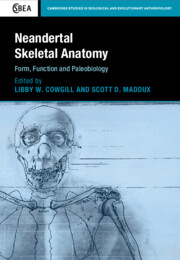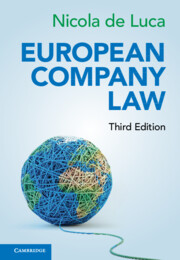Refine listing
Actions for selected content:
1299800 results in Books
After Hype
- The Business of Taming the Digital Economy
- Coming soon
-
- Expected online publication date:
- June 2026
- Print publication:
- 30 June 2026
-
- Book
- Export citation
States Under Stress
- Explaining Resilience in the Middle East
- Coming soon
-
- Expected online publication date:
- June 2026
- Print publication:
- 30 June 2026
-
- Book
- Export citation
Appropriation and Religion in the Greek and Roman Worlds
- Coming soon
-
- Expected online publication date:
- June 2026
- Print publication:
- 30 June 2026
-
- Book
- Export citation
Seismic Imaging and Inversion
- Application of Direct Nonlinear Inverse Theory
- Coming soon
-
- Expected online publication date:
- June 2026
- Print publication:
- 30 June 2026
-
- Book
- Export citation

Denial, Deterrence, and Disenchantment
- Why Many Never Immigrate
- Coming soon
-
- Expected online publication date:
- June 2026
- Print publication:
- 30 June 2026
-
- Book
- Export citation
China's ‘Everything Online' Company
- The Unique Innovation Model of Tencent
- Coming soon
-
- Expected online publication date:
- June 2026
- Print publication:
- 30 June 2026
-
- Book
- Export citation

Lump in My Throat
- What Cancer Taught Me about Communication
- Coming soon
-
- Expected online publication date:
- June 2026
- Print publication:
- 11 June 2026
-
- Book
- Export citation

Speaking Freedom
- The Tunisian Public Sphere between Revolution and Democracy
- Coming soon
-
- Expected online publication date:
- June 2026
- Print publication:
- 30 June 2026
-
- Book
- Export citation
Novalis's ‘Heinrich von Ofterdingen'
- A New Translation and Critical Study
- Coming soon
-
- Expected online publication date:
- June 2026
- Print publication:
- 30 June 2026
-
- Book
- Export citation
Qualitative Causal Inference and Explanation
- Coming soon
-
- Expected online publication date:
- June 2026
- Print publication:
- 30 June 2026
-
- Book
- Export citation
Genres of Teaching
- Coming soon
-
- Expected online publication date:
- June 2026
- Print publication:
- 30 June 2026
-
- Book
- Export citation
Developing Theories in the Social Sciences
- Methods and Applications
- Coming soon
-
- Expected online publication date:
- June 2026
- Print publication:
- 30 June 2026
-
- Book
- Export citation

Neandertal Skeletal Anatomy
- Form, Function and Paleobiology
- Coming soon
-
- Expected online publication date:
- June 2026
- Print publication:
- 31 July 2026
-
- Book
- Export citation

Ngugi wa Thiong'o in Context
- Coming soon
-
- Expected online publication date:
- June 2026
- Print publication:
- 30 June 2026
-
- Book
- Export citation
Gender and Elections
- Shaping the Future of American Politics
- Coming soon
-
- Expected online publication date:
- June 2026
- Print publication:
- 30 June 2026
-
- Textbook
- Export citation
Frenzy in Early Modern England
- Madness, Brain Disease and the Soul
- Coming soon
-
- Expected online publication date:
- June 2026
- Print publication:
- 30 June 2026
-
- Book
- Export citation
Ideology and the Language of Human Rights
- Language, Text, and Ideology in Amnesty International Appeal Letters
- Coming soon
-
- Expected online publication date:
- June 2026
- Print publication:
- 30 June 2026
-
- Book
- Export citation
On Trade War
- Coming soon
-
- Expected online publication date:
- June 2026
- Print publication:
- 30 June 2026
-
- Book
- Export citation

European Company Law
- Coming soon
-
- Expected online publication date:
- June 2026
- Print publication:
- 30 June 2026
-
- Textbook
- Export citation
Scientific Theories of Consciousness
- Coming soon
-
- Expected online publication date:
- June 2026
- Print publication:
- 30 June 2026
-
- Book
- Export citation
